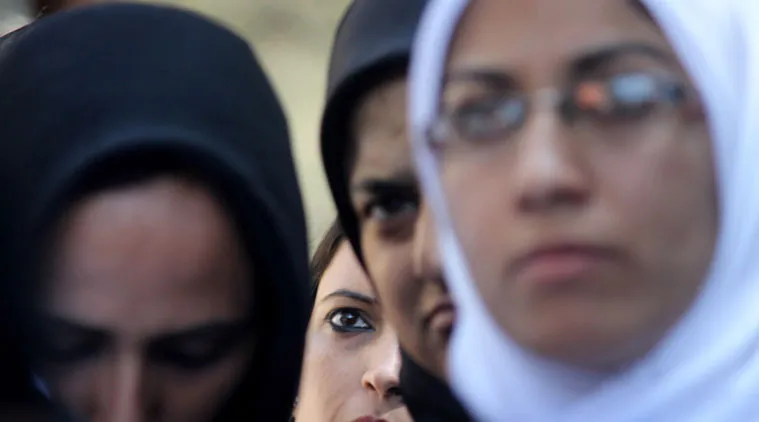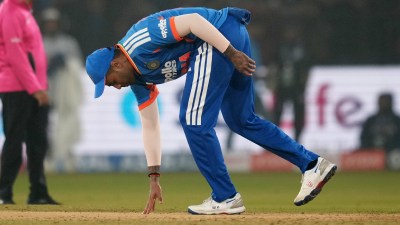Stay updated with the latest - Click here to follow us on Instagram
The churn within
Thirty-one years on, Shah Bano's shadow is long.
 When issues such as triple talaq and polygamy ended up as political football for the RSS and the BJP, Muslim women and other organisations are wary of raising the stakes on these matters. (Representational Photo/Express)
When issues such as triple talaq and polygamy ended up as political football for the RSS and the BJP, Muslim women and other organisations are wary of raising the stakes on these matters. (Representational Photo/Express)
In 2005, Imran and Naaish were wed in Lucknow by a woman qazin. She was Syeda Hameed, also a member of the Planning Commission then. Hameed recalls the incident as “a paradigm shift, unheard of in India, of women getting into a strictly male space”.
In the past three decades, the Muslim community has been seeing several such initiatives within on questions related to women and personal law. The Lucknow-based All India Muslim Women’s Personal Law Board (AIMWPLB), which came into being in 2005, has been trying to secure Muslim women rights both within the parameters of Islamic courts and, less often, through regular courts.
AIMWPLB president Shaista Amber says, “I felt Muslim women need specific attention for the first time back in 1997-98, when there was a case in Lucknow. A father was raping his two daughters and when we turned to the Darul Qaza (the family personal law court), we got no relief. I was struck by how those in burqa and those with beards faced a double problem. In regular courts, they face plenty of prejudice and are told to go to Muslim family courts, while in Darul Qaza, often flawed interpretations are made of Islamic law, denying them justice. That is when I wondered that if a section of the maulanas is going to uphold a particular interpretation of one school of Islam that upholds things like instantaneous triple talaq etc, where will we get justice?”
In Mumbai, a section of Muslim reformers, led by the late Asghar Ali Engineer and Flavia Agnes, has been trying to get a model nikah-nama accepted, which tries to rule out triple talaq and to settle the meher or alimony at reasonable and realistic levels in the marriage document itself.
Irfan Engineer, Engineer’s son who has taken up his work, says, “The Shah Bano case was a quiet watershed for Muslims, who wanted things to change but felt (afraid of) falling into the trap of the Hindutva right trying to use this to tarnish Islam. The view we arrived at was that we cannot allow the Hindutva right to be replaced by the tyranny of the Muslim right.”
Irfan adds that while he agrees with courts helping Muslim women get relief, the point to be noted was that “triple talaq is not considered legit in most Islamic countries and even sizeable sections of Muslims here. Islam stands for equality, social justice, liberty and dignity for all. We have to interpret it rightly.”
The Bharatiya Muslim Mahila Andolan, based in Mumbai, has been taking up issues concerning women in Islam and standing by an enlightened interpretation of Islam. It organises “hundreds of workshops to raise awareness” and takes up cases in courts. The Andolan has also been active in pushing Haji Ali dargah to reopen its doors to women.
In Tamil Nadu, D Sharifa Khanam runs an organisation called STEPS for the development of Muslim women.
The Maharashtra-based Bebaak Collective is an umbrella outfit, set up in 2013, with Muslim women’s organisations from 14 states agitating for gender justice in accordance with secular laws, without reference to religion.
Speak Out on FGM and SAHIYO are Bohra women organisations trying to stop the religious practice of female genital mutilation among the Shi’as.
Even the All India Muslim Personal Law Board (AIMPLB), set up in 1973 with the mandate to safeguard Muslim personal law, and which has opposed Shayara Banu’s petition, is not what it was 30 years ago. Now, it has 40 women members all over India.
Explaining the AIMPLB stand in Shayara Banu case, Uzma Naheed, who is part of the AIMPB executive, says, “We are opposed to courts jumping in and adjudicating on matters they do not perhaps fully comprehend in terms of our suras and other practices.”
Lawyer M R Shamshad says the Shariat Act was enacted in 1939 and subsequent pledges made to the community in the Constitution “give Muslims and other religious minorities the right to live by their personal laws. The attempt to have a Uniform Civil Code is in Article 44, which is just a directive principle.”
After the experience of the 1980s, when issues such as triple talaq and polygamy ended up as political football for the RSS and the BJP, Muslim women and other organisations are wary of raising the stakes on these matters, especially in the prevailing political environment. At the same time, this allows a section of the clerics to close ranks and fight against any court-mandated reform. Thirty-one years on, Shah Bano’s shadow is long.







